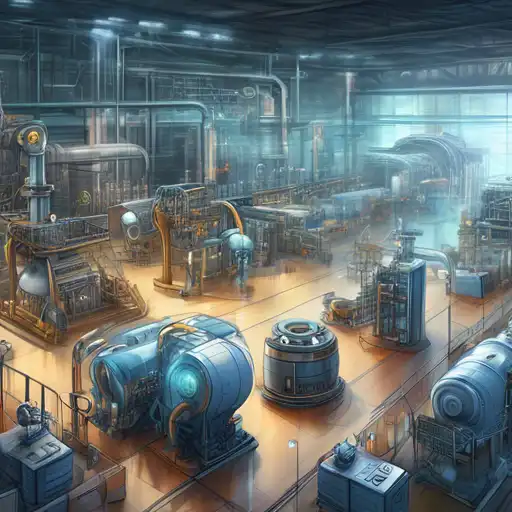Revolutionizing Industrial Automation: The IoT Effect
The integration of the Internet of Things (IoT) into industrial automation has marked a significant turning point in how industries operate. This transformative technology has not only enhanced efficiency but also paved the way for smarter, more connected manufacturing environments. In this article, we delve into the profound impact of IoT on industrial automation, exploring its benefits, challenges, and future prospects.
Understanding IoT in Industrial Automation
IoT refers to the network of physical devices embedded with sensors, software, and other technologies to connect and exchange data with other devices and systems over the internet. In the context of industrial automation, IoT enables machinery and equipment to communicate seamlessly, leading to unprecedented levels of automation and data exchange.
The Benefits of IoT in Industrial Automation
The adoption of IoT in industrial automation brings numerous advantages, including:
- Enhanced Efficiency: IoT devices can monitor and optimize production processes in real-time, reducing downtime and increasing productivity.
- Predictive Maintenance: By analyzing data from sensors, IoT can predict equipment failures before they occur, minimizing unplanned downtime.
- Improved Safety: IoT technologies can monitor hazardous environments, reducing the risk of accidents and ensuring worker safety.
- Energy Savings: Smart sensors can optimize energy use, leading to significant cost reductions and environmental benefits.
Challenges of Implementing IoT in Industrial Automation
Despite its benefits, the integration of IoT into industrial automation is not without challenges. These include:
- Security Concerns: The increased connectivity raises the risk of cyberattacks, necessitating robust security measures.
- High Initial Costs: The upfront investment for IoT infrastructure can be substantial, though the long-term benefits often justify the expense.
- Complexity: Managing and analyzing the vast amounts of data generated by IoT devices requires sophisticated systems and skilled personnel.
The Future of IoT in Industrial Automation
The future of IoT in industrial automation is bright, with advancements in artificial intelligence (AI) and machine learning (ML) further enhancing its capabilities. The rise of Industry 4.0 is a testament to the growing importance of IoT in creating smart factories that are more efficient, flexible, and sustainable.
As industries continue to embrace IoT, we can expect to see even greater innovations in automation, from autonomous robots to fully integrated supply chains. The potential for IoT to transform industrial automation is limitless, promising a future where smart manufacturing is the norm.
Conclusion
The impact of IoT on industrial automation cannot be overstated. By enabling smarter, more connected, and efficient manufacturing processes, IoT is revolutionizing the industry. Despite the challenges, the benefits far outweigh the drawbacks, making IoT an indispensable tool in the modern industrial landscape. As we move forward, the continued evolution of IoT technologies will undoubtedly unlock new possibilities for industrial automation, driving progress and innovation in the sector.
